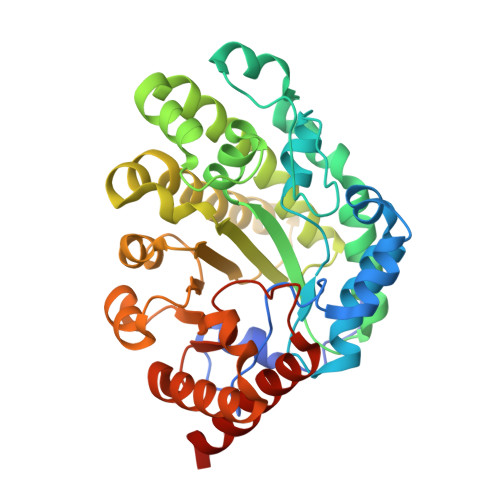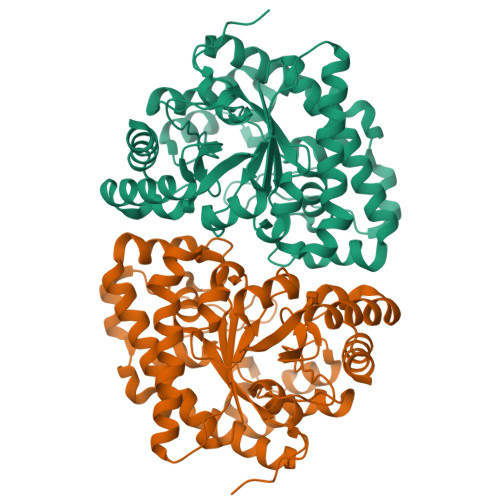Structural and kinetic characterization of mutant human uroporphyrinogen decarboxylases.
Warby, C.A., Phillips, J.D., Bergonia, H.A., Whitby, F.G., Hill, C.P., Kushner, J.P.(2009) Cell Mol Biol (noisy-le-grand) 55: 40-45
- PubMed: 19656450
- Primary Citation of Related Structures:
3GW0, 3GW3 - PubMed Abstract:
Porphyria cutanea tarda (PCT) is caused by inhibition of uroporphyrinogen decarboxylase (URO-D) activity in hepatocytes. Subnormal URO-D activity results in accumulation and urinary excretion of uroporphyrin and heptacarboxyl porphyrin. Heterozygosity for mutations in the URO-D gene is found in the familial form of PCT (F-PCT). Over 70 mutations of URO-D have been described but very few have been characterized structurally. Here we characterize 3 mutations in the URO-D gene found in patients with F-PCT, G318R, K297N, and D306Y. Expression of the D306Y mutation results in an insoluble recombinant protein. G318R and K297N have little effect on the structure or activity of recombinant URO-D, but the proteins display reduced stability in vitro.
Organizational Affiliation:
Department of Medicine, University of Utah School of Medicine, Salt Lake City, Utah 84132, USA.
















